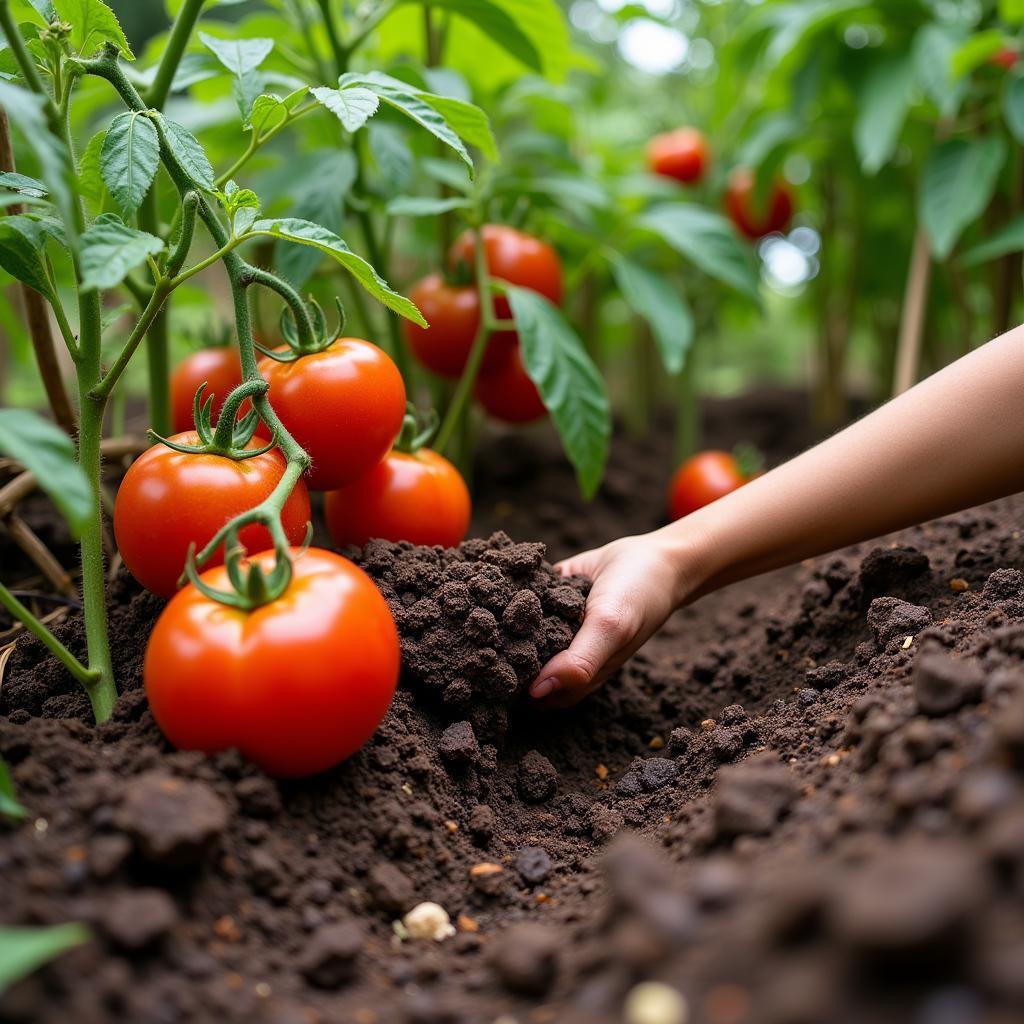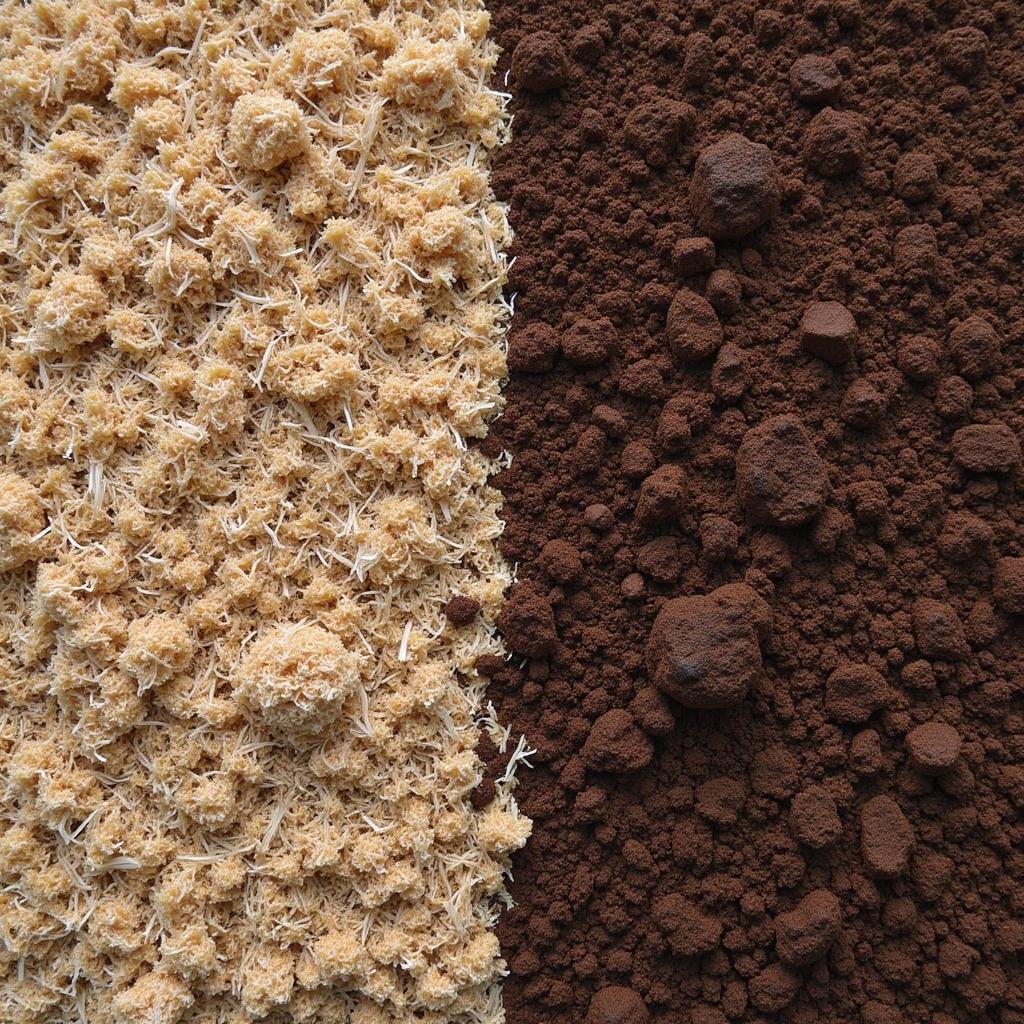Using Horse Manure For Tomatoes is a time-tested method to provide your plants with essential nutrients for vigorous growth and a bountiful harvest. This natural fertilizer is a powerhouse of nitrogen, phosphorus, and potassium, the vital trio for healthy tomato plants.
The Benefits of Horse Manure for Your Tomato Garden
 Horse manure being spread around tomato plants
Horse manure being spread around tomato plants
Why choose horse manure? Unlike synthetic fertilizers, horse manure improves soil structure, boosting drainage in clay soil and enhancing water retention in sandy soil. This translates to an optimal growing environment for your tomatoes, leading to stronger roots and healthier plants.
Here’s how horse manure benefits your tomato patch:
- Rich in Nutrients: Provides a slow and steady release of nitrogen, phosphorus, and potassium, essential for foliage growth, flowering, and fruit production.
- Improves Soil Structure: Enhances drainage, aeration, and water retention, creating an ideal environment for root development.
- Sustainable Gardening Practice: A natural alternative to chemical fertilizers, promoting eco-friendly gardening.
- Increased Beneficial Organisms: Introduces beneficial microorganisms to the soil, contributing to a balanced and fertile ecosystem.
Using Horse Manure: Fresh vs. Composted
 Piles of fresh and composted horse manure
Piles of fresh and composted horse manure
Understanding the difference between fresh and composted manure is crucial:
- Fresh Manure: While rich in nutrients, fresh manure can burn tomato plants due to its high nitrogen content. It also may contain weed seeds and pathogens.
- Composted Manure: Composting eliminates the risks associated with fresh manure. It’s decomposed, weed-free, and safe for direct application to your tomato plants.
How to Apply Horse Manure to Your Tomatoes
For optimal results, follow these steps:
- Compost Fresh Manure: Allow fresh manure to decompose for at least six months, turning it regularly to ensure proper aeration.
- Apply Composted Manure: Incorporate well-aged compost into the soil around your tomato plants, avoiding direct contact with the stems.
- Watering: Water your tomato plants thoroughly after applying the manure to help the nutrients penetrate the soil.
- Mulching: Apply a layer of mulch around your tomato plants to retain moisture and regulate soil temperature.
Tips for Success:
- Source Carefully: Obtain manure from reputable sources to minimize the risk of contamination.
- Test Your Soil: A soil test can help you determine the ideal amount of manure needed for your specific soil type.
- Start Small: Begin with a small amount of manure and gradually increase the quantity over time.
“Using well-composted horse manure is like giving your tomatoes a gourmet meal,” says master gardener Emily Carter. “It’s packed with everything they need to thrive and produce an abundant harvest.”
Conclusion
Harnessing the power of horse manure for your tomatoes is a natural and effective way to boost your garden’s productivity. By understanding the application methods and following these guidelines, you can reap the rewards of this organic fertilizer, resulting in healthier plants and delicious, homegrown tomatoes.
Contact Justus Horses USA at 0772127271, email us at [email protected], or visit us at QGM2+WX2, Vị Trung, Vị Thuỷ, Hậu Giang, Việt Nam. Our team is available 24/7 to assist you.